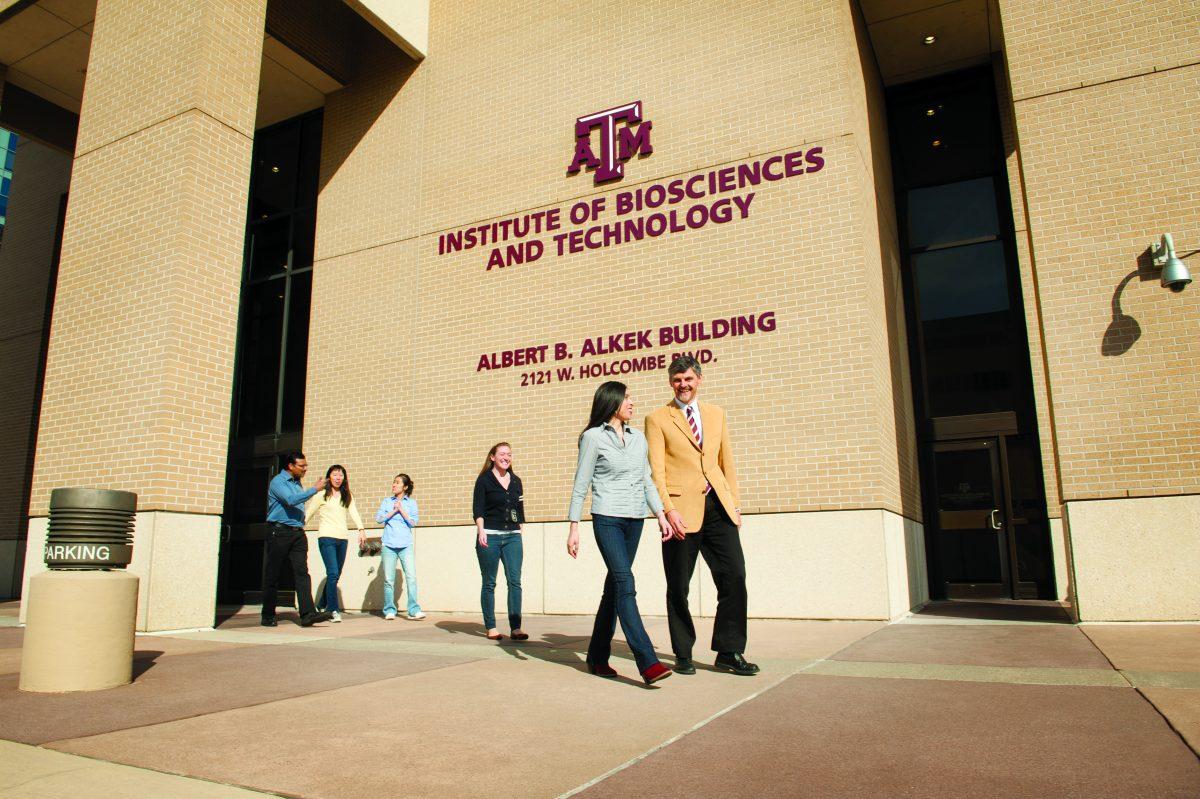In early September, The Cancer Prevention and Research Institute of Texas (CPRIT) awarded more than $9 million within eight grants to Texas A&M University for cancer research.
More than $7.7 million was dedicated to academic research grants and the remaining $1.35 million towards a prevention grant.
The largest amount within the total equaled an almost $6 million grant given to Director for the Center for Advanced Imaging Michael Mancini and professor and Director of the Center for Translational Cancer Research Peter Davies, whose goal collectively aims to develop new therapies across a broad spectrum of cancers.
Davies and Mancini share a leading partnership for the Center for Advanced Microscopy and Image Informatics in the Institute of Biosciences and Technology, College of Medicine.
Regarding the Core Facility Support Award (CFSA) given to Davies and Mancini, the money will support their collaborative core facility that is shared between Texas A&M University Institute of Biosciences and Technology and Baylor College of Medicine. Other institutions such as Rice University, MD Anderson and the University of Houston will have access to this facility.
“The award is to support specialized core facilities to provide researchers with access to state of the art equipment and expertise to help support cancer research projects,” Davies said. “Specifically cancer research projects focused on developing new therapies for cancer.”
Davies said as of now, the main focus is to fund projects directly involved in new therapies for cancer. More specifically, cancers that are lacking in sufficient drugs.
“It’s a facility to serve many, many investigations,” Davies said. “We anticipate that in any given year, 20-30 different projects will be running in the facility, in the program, supporting different aspects of cancer research for many different types of cancers.”
Two years ago, A&M received a grant for $6 million to support new combination therapies for cancer. However, the recent grant will focus on imaging techniques.
“It places Texas A&M as a leader in the medical center in supporting a program to develop new therapies for cancer,” Davies said. “This is actually the second of these CPRIT core facility grants to support cancer therapy that we at Texas A&M have received … and this is to help us use new imaging techniques for cancer.”
Another CPRIT grant was that awarded to A&M went to professor from the Department of Chemistry and holder of the Emile and Marta Schweikart Professorship in Chemistry Wenshe Liu. He received $200,000 to fund a project aimed to expand the chemical diversity of a phage display library.
This is the first grant Liu has received regarding cancer research. Currently, one of his students is working on a discovery with the SIRT2 enzyme.
“We have a really good target right now,” Liu said. “It is an enzyme which can change human epigenetics … it can be a really good target for treating a cancer such as a breast cancer.”
In the past, projects like this have taken five to 10 years to make about 100 molecules. However, this program will consist of two week experiments at a time producing billions of molecules.
“I think it will change the paradigm of the way of doing cancer research,” Liu said. “So a lot of people just look at one target and try to figure out how that target works and try to do rational design. We don’t do that. We make billions of small molecules and select ligands for multiple targets in a short period of time and figure out which one works better.”
Similar to Mancini and Davies, Liu said translational research will pave a significant path with new discoveries.
“I think it will change a lot dramatically in the chemical biology area by doing the biomedical type of research,” Liu said. “I see the university is very strong in doing biomedical research on the basic side, we haven’t done a lot of translational research, and this is really translational.”
Liu said his passion for cancer research stems from personal experience.
“I myself am a cancer survivor,” Liu said. “I did a lot of the basic research … but the thing is, we didn’t really move to the translational side like four or five years ago.”
When lying on the hospital bed for treatment, Liu said he contemplated the things he had accomplished in his life to impact human health and decided he wanted to do more.
“I want to do something that can change my life right away, which can also help other people to combat cancer too,” Liu said. “I think we will get something done really soon and will hopefully be very impactful. This is only the starting point.”
Grant gives Texas A&M funds for further cancer research
September 19, 2017
Photo by Courtesy of Texas A&M University Health Science Center
Grants awarded by CPRIT have allowed the development of new cancer therapies and treatment.
0
Donate to The Battalion
$0
$5000
Contributed
Our Goal
Your donation will support the student journalists of Texas A&M University - College Station. Your contribution will allow us to purchase equipment and cover our annual website hosting costs, in addition to paying freelance staffers for their work, travel costs for coverage and more!
More to Discover









